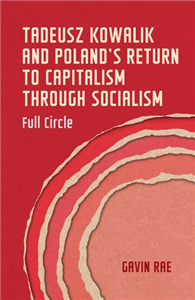Description
More Information
Rights Information
Albania, Algeria, Angola, Argentina, Armenia, Australia, Austria, Bahrain, Belgium, Belize, Benin, Bolivia, Bosnia and Herzegovina, Botswana, Brazil, Bulgaria, Burkina Faso, Burundi, Cameroon, Canada, Cape Verde, Central African Republic, Chad, Chile, China, Colombia, Comoros, Congo [DRC], Congo, Republic of the, Costa Rica, Ivory Coast, Croatia, Czech Republic, Denmark, Djibouti, Ecuador, Egypt, El Salvador, Equatorial Guinea, Eritrea, Estonia, Ethiopia, Faroe Islands, Finland, France, French Guiana, Gabon, Gambia, Georgia, Germany, Ghana, Greece, Guatemala, Guinea, Guinea-Bissau, Guyana, Honduras, Hongkong, Hungary, Iceland, India, Indonesia, Iran, Iraq, Ireland, Israel, Italy, Japan, Jordan, Kazakhstan, Kenya, Kuwait, Latvia, Lebanon, Lesotho, Liberia, Libya, Lithuania, Luxembourg, Macau, China, Macedonia [FYROM], Madagascar, Malawi, Malaysia, Mali, Malta, Mauritania, Mauritius, Mayotte, Mexico, Mongolia, Montenegro, Morocco, Mozambique, Namibia, Netherlands, New Zealand, Nicaragua, Niger, Nigeria, Norway, Oman, Pakistan, Panama, Paraguay, Peru, Philippines, Poland, Portugal, Puerto Rico, Qatar, Reunion, Romania, Russia, Rwanda, Saint Helena, Sao Tome and Principe, Saudi Arabia, Senegal, Serbia, Seychelles, Sierra Leone, Singapore, Slovakia, Slovenia, Somalia, South Africa, South Korea, Spain, Sri Lanka, Sudan, Suriname, Swaziland, Sweden, Switzerland, Syria, Taiwan, Tanzania, Thailand, Timor-Leste, Togo, Tokelau, Tunisia, Turkey, Uganda, Ukraine, United Arab Emirates, United Kingdom, United States, Uruguay, Venezuela, Vietnam, Western Sahara, Yemen, Zambia, Zimbabwe, South Sudan, Cyprus, Palestine, Bangladesh, Cambodia, Liechtenstein, Azerbaijan, Jamaica, Kyrgyzstan, Dominican Republic, Myanmar, Monaco
Endorsements
This book examines the intellectual and political life of the historian of economic ideas, Tadeusz Kowalik. Kowalik grew up in a small town in the east of Poland, where he experienced the realities of poverty and social inequality in pre-War Polish capitalism before then being plunged into the horrors of Nazi occupation. He quickly advanced within the new socialist system installed after the War, cooperating with a group of critical socialist intellectuals that included Michal Kalecki and Oskar Lange who followed in the footsteps of Polish Marxist political economists such as Rosa Luxemburg. This book covers the work of Kowalik, and others from this Polish School of critical political economy, within the context of the unfolding events and debates occurring at the time. Kowalik participated in some of the most meaningful events in post-war Poland, culminating in him instigating a delegation of intellectuals to visit and advise strikers during the momentous strikes at the shipyards in Gdansk. After living abroad for most of the bleak 1980s, Kowalik returned to Poland as the transformation from socialism to capitalism began. He stood out as a vocal critic of the neoliberal form of capitalism installed in Poland, arguing that a range of alternatives to neoliberal capitalism and neoclassical economics existed. By the time Kowalik died in 2012, his life had come full circle, as he once again observed world capitalism plunge into crises and right-wing political authoritarianism rise in Poland and beyond.
Reviews
This book examines the intellectual and political life of the historian of economic ideas, Tadeusz Kowalik. Kowalik grew up in a small town in the east of Poland, where he experienced the realities of poverty and social inequality in pre-War Polish capitalism before then being plunged into the horrors of Nazi occupation. He quickly advanced within the new socialist system installed after the War, cooperating with a group of critical socialist intellectuals that included Michal Kalecki and Oskar Lange who followed in the footsteps of Polish Marxist political economists such as Rosa Luxemburg. This book covers the work of Kowalik, and others from this Polish School of critical political economy, within the context of the unfolding events and debates occurring at the time. Kowalik participated in some of the most meaningful events in post-war Poland, culminating in him instigating a delegation of intellectuals to visit and advise strikers during the momentous strikes at the shipyards in Gdansk. After living abroad for most of the bleak 1980s, Kowalik returned to Poland as the transformation from socialism to capitalism began. He stood out as a vocal critic of the neoliberal form of capitalism installed in Poland, arguing that a range of alternatives to neoliberal capitalism and neoclassical economics existed. By the time Kowalik died in 2012, his life had come full circle, as he once again observed world capitalism plunge into crises and right-wing political authoritarianism rise in Poland and beyond.
Author Biography
Gavin Rae is an Associate Professor of Sociology at Kozminski University in Warsaw
Manchester University Press
Manchester University Press is a leading UK publisher known for excellent research in the humanities and social sciences.
View all titlesBibliographic Information
- Publisher Manchester University Press
- Publication Date March 2025
- Orginal LanguageEnglish
- ISBN/Identifier 9781526167385 / 1526167387
- Publication Country or regionUnited Kingdom
- FormatPrint PDF
- Pages248
- ReadershipCollege/higher education; Professional and scholarly
- Publish StatusPublished
- Dimensions234 X 156 mm
- Biblio NotesDerived from Proprietary 5615
- SeriesGeopolitical Economy
- Reference Code14725
Manchester University Press has chosen to review this offer before it proceeds.
You will receive an email update that will bring you back to complete the process.
You can also check the status in the My Offers area

Please wait while the payment is being prepared.
Do not close this window.



